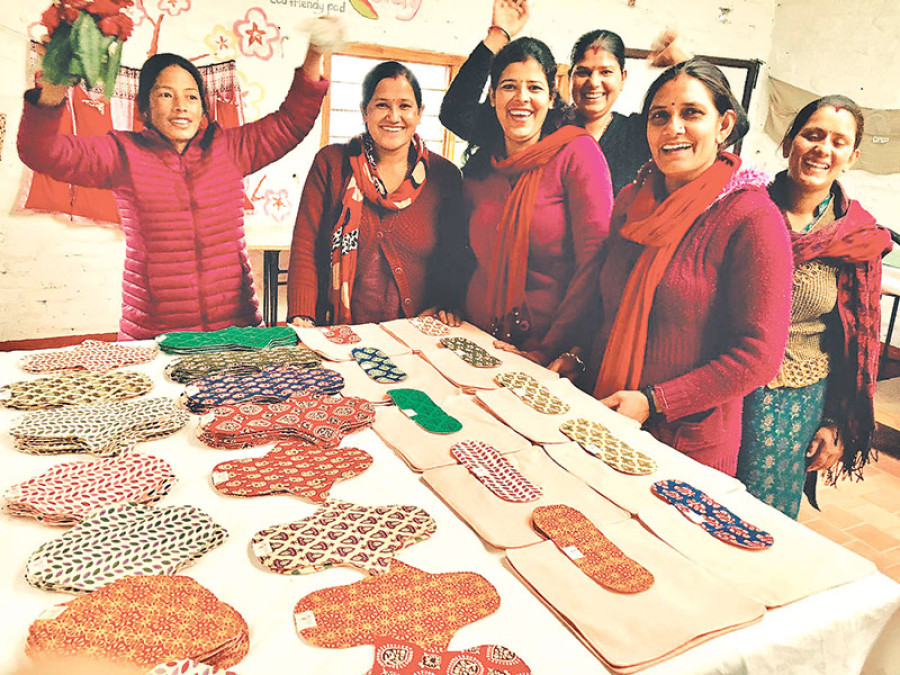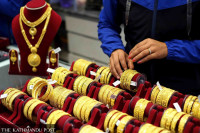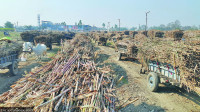Money
Eco-friendly sanitary pads struggle to find market
Disposable sanitary pads may be a billion dollar industry worldwide, but Dharti Mata Sustainable Workshop which produces handmade eco sanitary pads is yet to make its presence felt in the domestic market.
Krishana Prasain
Disposable sanitary pads may be a billion dollar industry worldwide, but Dharti Mata Sustainable Workshop which produces handmade eco sanitary pads is yet to make its presence felt in the domestic market. This is because of lack of awareness, says the manager of the company which launched in 2013.
“While Western women prefer eco sanitary pads as they are more health and environment conscious, Nepali women prefer disposable sanitary pads,” said Mithu Dhital, manager of Dharti Mata Sustainable Workshop.
“It’s not been so long since Nepali women started using modern pads, a shift from the centuries-old practice of recycling old saris and towels into napkins,” she said. “So it’s difficult to change their mindset immediately.”
Located at Patalekhet in Kavrepalanchok, the company sells Rs1 million worth of Love Lady Eco sanitary pads in the domestic market. “Business is slow, but it is growing at the rate of 15 percent annually,” said Dhital who looks after the domestic market.
The workshop was founded by Lin Nien-Tzu, a Taiwanese social entrepreneur who was featured in the BBC 100 Women of 2017, a list compiled by the British broadcaster of the most influential and inspirational women in the world. Eco sanitary pads are far better than disposable sanitary pads in terms of quality, price, health and the environment as only cotton fabric is used to make them, the company said. Regular sanitary pads are made of flannel fabric. The company imports cotton yarn from India which is processed into fabric to make sanitary pads. If cleaned properly, the pad can be used for two to three years, said Dhital. All the pads are made using natural materials by local women of Kavre and are comfortable, absorbent and reduce chances of rashes and infection, she said.
According to Dhital, eco pads are affordable as compared to disposable sanitary pads as one can save more than Rs2,000 annually because they can be reused for two to three years. The company guarantees that an eco pad can be used for two years. And if maintained properly, it can be used for three years.
Normal eco sanitary pads are priced at Rs120 to Rs350 each and are widely affordable. The organic variety costs Rs400 to Rs600 each.
By buying these sanitary pads, customers are helping to generate employment in rural Nepal and also assisting in the promotion of women’s health through environment-friendly and female-friendly sanitary pads.
Meanwhile, demand for eco sanitary pads is growing in foreign countries due to their health benefits. However, Dhital said she was not aware of the export business which is handled by Taiwanese social entrepreneur Lin Nien-Tzu. “But they are exported in large quantities,” she said. The pads are exported to Taiwan, the US, the UK, Hong Kong, Macau, Japan and Malaysia.
In the domestic market, the eco pads are mostly sold by organizations working for women’s health. They are also available in a few shops in Thamel catering to tourists.
Love Lady Eco sanitary pads are handmade and are available in six designs. The workshop employs seven women who produce 1,500 eco pads monthly. The skill of making eco sanitary pads has supported local women economically as they are earning Rs10,000 monthly, Dhital said. Likewise, knowledge about menstrual hygiene has increased among local women.
The sanitary pads are produced and marketed by Hasera, a certified organic farm and permaculture learning centre dedicated to the promotion of sustainable agriculture, sustainable development and permaculture in Nepal and abroad. Many students and foreign tourists visit the farm and learn how to make sanitary pads.




 12.58°C Kathmandu
12.58°C Kathmandu













